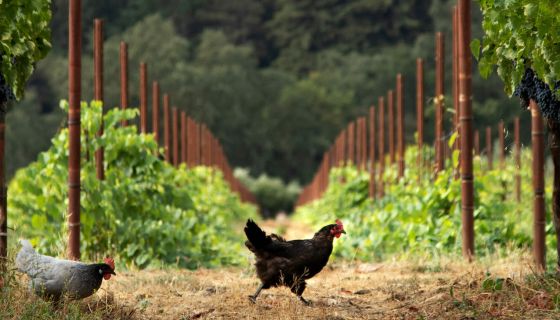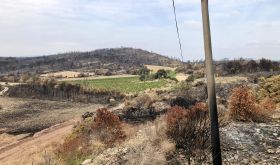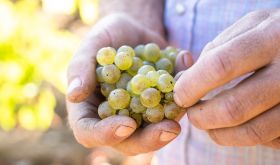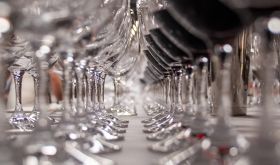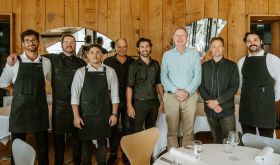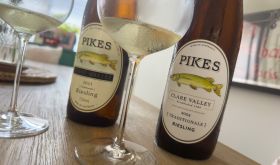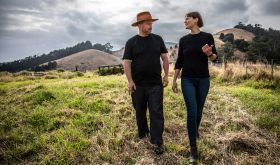It’s difficult to argue that sustainability is not a fine thing, even if we may differ as to the relative importance of environmental, economic and social sustainability. On the basis of a competition I have just been involved with, it seems to me that wine producers are generally ahead of most other agricultural sectors in these respects – at least as far as the environment goes.
Every summer we run a writing competition for visitors to JancisRobinson.com and are always surprised by how popular they are. Past themes have included what lit the flame for a love of wine and a wine lovers’ guide to a particular place. This year's competition was much more demanding than usual. Entrants had to write profiles of wine producers who really make an effort to be sustainable, describing the measures they take and their overall philosophy. We said that anyone could write about anywhere so long as they made any commercial affiliations clear.
Throughout July entries trickled in and I worried that we had asked too much, but towards the mid-August deadline the trickle became a flow. We ended up with a good 85 entries about almost 80 different producers (there were some duplications), of which a decidedly impressive 75 were sufficiently well written and interesting to publish.
It's clear that the proportion of wine producers committed to organic or, even more demanding, biodynamic vine-growing has been increasing worldwide, even if the phenomenon tends to be limited to small and medium-sized operations. Not that many years ago it might have been assumed that any wine producer whose vineyards were certified organic was quite committed enough to deserve praise, but the detail in some of these entries made it clear that this is just the first tiny step towards true sustainability.
At Felton Road in Central Otago, New Zealand, for example, a herd of goats was established to provide manure that sufficiently fertilised a hillside above the vines to sustain a herd of Highland cattle whose horns are co-opted as receptacles for rich manure, as specified by biodynamic practices that involve sprinkling homeopathic doses of particularly potent preparations on the vineyard by hand according to the lunar calendar. So now they produce meat as well as wine within a convenient ecosystem (and are so waste-conscious that they get by with one domestic-size refuse bin that is emptied fortnightly). All this may sound crazy but probably not once you taste the wines. Perhaps less crazy, but hugely demanding, is their unusual insistence on making a separate compost for each of their vineyards, based on waste pomace from that vineyard only – all in an effort to maximise individual terroir effects. This is all the more admirable since Felton Road is a sizeable operation filling about 150,000 bottles a year, mainly with single-vineyard Pinot Noir, and has an international reputation for both quality and commercial success.
At Illahe in Oregon, Percheron draft horses deliver grapes to the winery, the wine is taken by stagecoach to the local river on which it is transported by canoe and eventually delivered locally by bicycle.
In Germany 33-year-old Franz Wehrheim is the fourth generation to run the Dr Wehrheim wine estate in the Pfalz. He follows all the usual biodynamic protocols in the vineyard but takes a thoroughly macro view: ‘… sustainability, without higher quality, just doesn’t pay. Many wineries don’t work sustainably because they simply can’t afford it.’ He is presumably one of the host of wine producers who, seeing a worldwide contraction in wine sales, has the overarching goal of achieving the sort of wine quality that commands prices that, in turn, will allow them to invest in increasingly sustainable practices.
‘We are the first generation who can actually afford to take bigger steps than those before us. … Future generations care about this topic even more than my generation. What changed for us is the attitude. We might be very successful but choose not to drive the latest Mercedes. The power to say no and stand by your principles is the new luxury.’ The Wehrheims, father and son, sensibly share capital-intensive bottling and vineyard equipment with other producers, and eat, hike and travel to other wine regions with their staff. (A common shortcoming among farmers is how workers are treated.)
Packaging has become an important issue. Southbrook in Canada, for instance, are as proud of sourcing their labels, screwcaps and lightweight glass containing 80% recycled materials for their bottles locally as they are of selling most of their wine within a 160-km (90-mile) radius of the winery.
We had entries from 22 countries, including Venezuela and Thailand, but the majority came from the UK and US. The really remarkable thing was how many of the sustainable wine producers profiled are in North America – 20 out of the 75 published entries – and how well they were represented in our shortlist: nine out of the 18 listed below, three of them in Napa Valley and three in Oregon. The next most well-represented locations of the profiled sustainable wine producers were, perhaps not surprisingly, France and Italy, which provided 10 entries apiece – but only one from each country made it on to our shortlist. Do the ravages of wildfires encourage greater concern about sustainability?
We recruited two specialist external judges to help us, and once the votes were counted it became clear that we had two equal winners – writing quality was paramount but they had to have chosen and described well a worthy subject – and they are both North American. The owner of Brooks winery in Oregon is 24-year-old Pascal Brooks who inherited it from his charismatic father Jimi Brooks when he suffered a fatal heart attack in 2004 at the age of 38. The younger Brooks has been based in Paris for the last two years, involved in wine and following in his father’s footsteps by doing a vintage in Europe, so he is not yet involved in the day-to-day running of the winery. But, to judge from his description of it, he understands fully just what sustainability in its widest sense entails and he could easily land a job as a writer should he ever fall out of love with wine.
The other winners are a pair of Masters of Wine, Ashley Hausman and Martin Reyes, who together wrote a profile of Spottswoode, a family-run winery that went out of its way, years before its Napa Valley neighbours, to walk the hard yards towards true, all-encompassing sustainability and continues to do more each year.
I asked the FT’s commodities correspondent Emiko Terazono how wine producers compare with other farmers in terms of their sustainability credentials. She pointed out that those in other sectors tend to be ‘finally addressing sustainability as a result of a lot of pressure from environmental activists and campaigners’ but is keenly aware that vignerons are much more likely to be self-motivated – or perhaps motivated by the need to distinguish themselves in an oversupplied market.
Admirably sustainable wine producers
These were all shortlisted in our sustainability wine writing competition:
Brooks Wines, Oregon by Pascal Brooks
Crittenden, Mornington Peninsula by Ed Verrill
Cullen, Margaret River by Mike Bartlett
Felton Road, Central Otago by Chris Howard
Frog's Leap, Napa Valley by Clayton Fox
Hirsch, Sonoma Coast by Nicholas Daddona
Illahe, Oregon by Aaron Bartels
Jakab, Tokaj by Annamaria Juhasz
Ch Maris, Minervois by Alex Hill
Matthiasson, Napa Valley by Chris Struck
San Donato, Tuscany by Nicoletta Dicova
Sokol Blosser, Oregon by Karen Magner
Solminer, California by Joanna Snawder-Manzo
Southbrook, Ontario by Jacky Blisson
Spottswoode, Napa Valley by Ashley Hausman MW and Martin Reyes MW
Waterkloof, Stellenbosch by Sarah Suzanne
Dr Wehrheim, Pfalz by Anna Chilton
Franz Weninger, Burgenland by Hajnalka Kis
Torres and Jackson Family Wines have formed International Wineries for Climate Action with the aim of decarbonising the wine industry. Applicants include Alma Carraovejas of Ribera del Duero, the Silver Oak group and Spottswoode in Napa Valley, Symington Family Estates in Portugal, VSPT in Chile and Yealands in New Zealand.

